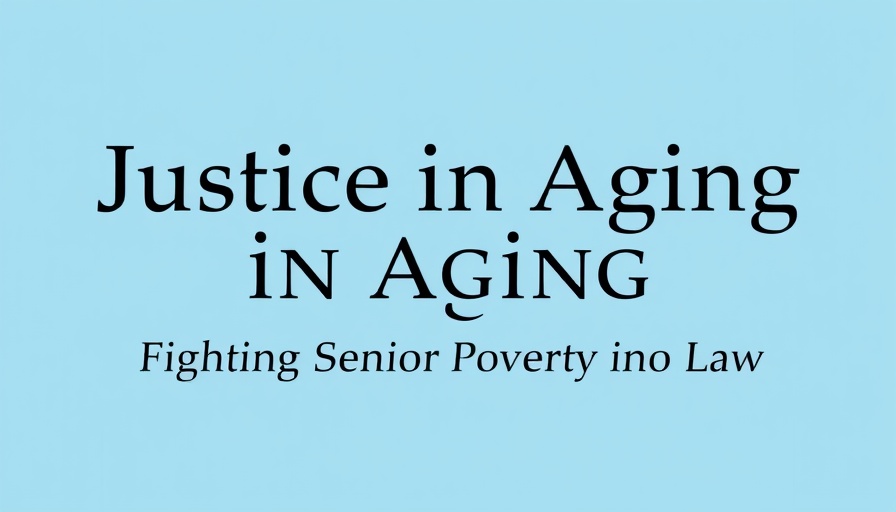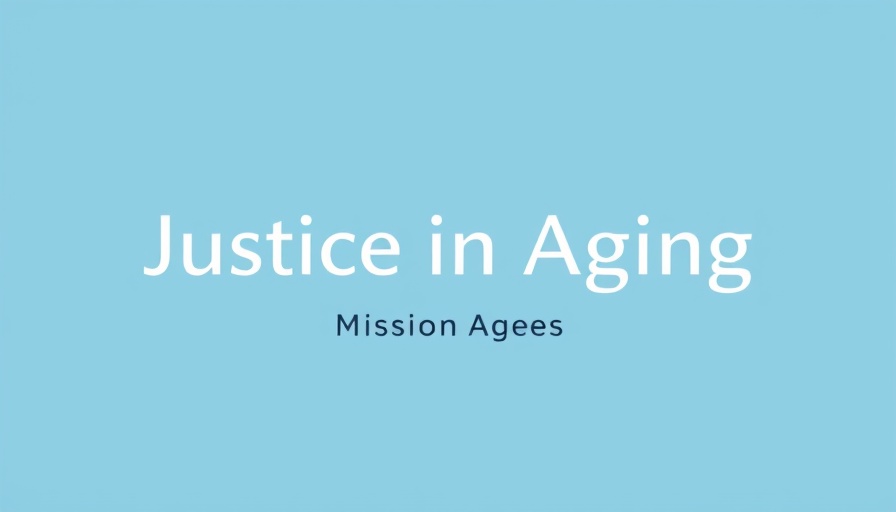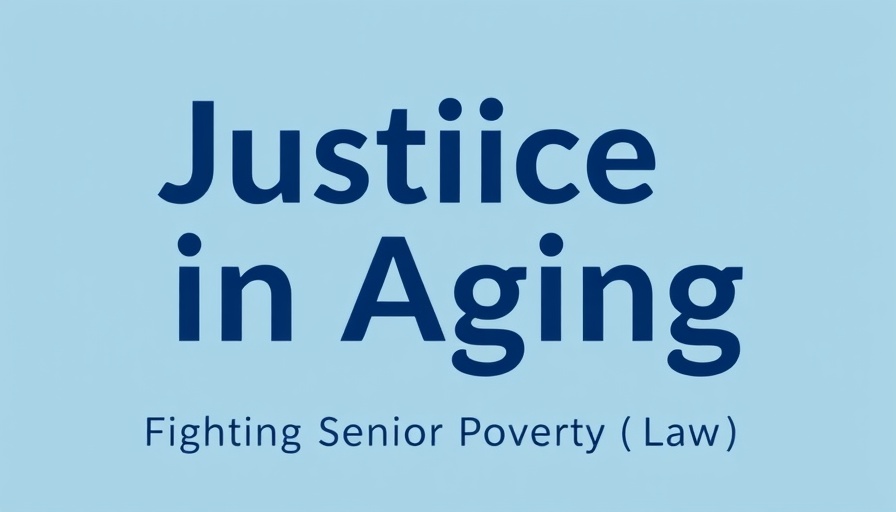
New Work Requirements: A Risk to Older Adults' Health Care
As the legislative landscape shifts in Washington, one of the most alarming proposed changes is the introduction of work requirements for Medicaid and housing assistance programs. The budget reconciliation bill (H.R. 1), which is under consideration in the Senate, threatens the Medicaid coverage of over 5 million people, including a staggering number of older adults. For those aged 50 to 64, it is projected that 1.8 million will lose their Medicaid coverage due solely to these work mandates.
The implications of these changes extend far beyond financial and administrative burdens; they imperil the vital health care that older adults rely on. The new work requirements are not only intended to promote employment but also shift the burden of proof onto individuals with disabilities—forcing them to repeatedly demonstrate their eligibility. This bureaucratic red tape represents a significant barrier, as many may not have the capacity or means to navigate such challenges.
Understanding the Impact of Caregiving
Interestingly, many recipients of Medicaid expansion are not just individuals; they are often caregivers themselves, handling responsibilities for older family members or dependent children. Research from the Urban Institute highlights that over half of the Medicaid expansion enrollees experiencing unstable employment are in caregiving situations. This intersection of caregiving and unstable job situations exacerbates their health challenges. Ultimately, the very essence of supportive family care could be endangered under these proposed regulations.
Housing Assistance in Jeopardy
In tandem with the new Medicaid proposals, the U.S. Department of Housing and Urban Development (HUD) is considering changes to its rental assistance programs. The latest plans include instituting time limits and work requirements that would impact older adults and those with disabilities. Such policies could forcibly eject many vulnerable residents from their homes, further contributing to the crisis of housing security among older populations.
Despite claims of exemptions, the reality is clear: these time limits would strip housing assistance from countless older adults who are already navigating complex health and financial challenges. Advocates such as Justice in Aging are rallying against these measures, urging Congress to consider the ramifications and reject these harmful policies.
Future Effects and Trends in Support Systems
The compelled reliance on work requirements places a spotlight on broader trends affecting senior citizens. As the demographic landscape continues to shift—with an increasing segment of the population entering older age—these programs need to evolve, not contract. Now more than ever, advocacy efforts need to strengthen, emphasizing that assistance programs are essential for maintaining health, dignity, and a basic standard of living for elder citizens.
With legislative changes looming, there’s an urgent need for older adults and advocates to stay informed. Understanding legislative intent and proposed changes empowers individuals and organizations to voice concerns and drive advocacy efforts effectively.
Actionable Insights for Seniors and Caregivers
Regularly accessing resources and educational opportunities provided by organizations like Justice in Aging can equip older adults and their caregivers with the knowledge necessary to navigate potential changes. Joining webinars and discussions allows for a collective voice in advocacy efforts against cuts to critical health care and housing services.
It's crucial to engage in discussions with local representatives, emphasizing the importance of maintaining robust support systems that honor the needs of our elders. By aligning community advocacy with policy review, societies can work towards protecting older adults from adverse legislative impacts.
A Summary of Ramifications for Elder Care
As discussions unfold around the proposed work requirements for Medicaid and HUD assistance, it’s clear that these changes have profound implications, especially for older adults. Maintaining access to health care and housing support is essential not just for individual well-being, but for the health of communities as a whole.
With the potential for major policy shifts on the horizon, it is imperative for individuals and advocates alike to remain vigilant and engaged, promoting a dialogue that clearly represents the needs and welfare of older adults. Together, we can ensure that the dignity and health of our senior community remain a priority in legislative considerations.
For those invested in the future of health and housing services for older adults, exploring available advocacy resources and joining upcoming discussions is essential. Together, let's work to protect the rights and health of our vulnerable populations.
 Add Row
Add Row  Add
Add 




 Add Row
Add Row  Add
Add 

Write A Comment